The woman child
The term "woman child" captures the complex nature of femininity, representing a blend of childlike innocence and the emerging qualities of womanhood. It portrays a stage in a girl's life where she is on the verge of transitioning into womanhood but has not yet fully reached maturity.
The idea of the woman child highlights the duality inherent in this transitional phase. On one hand, the term emphasizes the youthful qualities of playfulness, curiosity, and a sense of wonder that are typically associated with childhood. On the other hand, it recognizes the burgeoning qualities of independence, self-discovery, and the gradual assumption of adult responsibilities.
In literature, art, and popular culture, the woman child often serves as a symbol of both vulnerability and strength. She embodies a sense of innocence and purity while navigating the challenges and complexities of growing up. This archetype can be found in various cultural narratives, representing the transitional phase of girls as they navigate the expectations, societal pressures, and personal growth associated with becoming a woman.
Moreover, the concept of the woman child can have different interpretations based on cultural, social, and historical contexts. It can represent the aspirations and struggles of young girls seeking empowerment, the preservation of youthful spirit amidst societal expectations, or even spiritual or mythological symbolism in religious texts.
The woman child encapsulates the unique experience of girls on the brink of womanhood, blending the qualities of childhood with the emerging characteristics of adulthood. It is a rich and multifaceted concept that invites exploration and understanding of the complex journey girls undertake as they transition into womanhood.
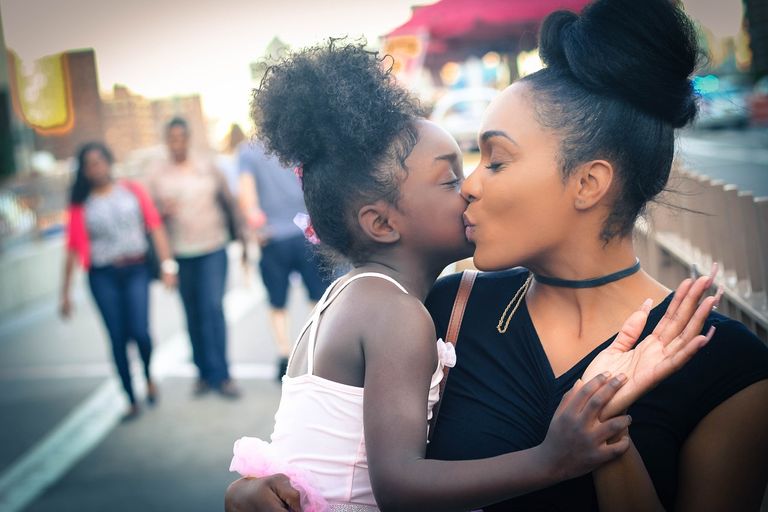
source
"The woman child" is a phrase that can have multiple interpretations depending on the context. It may refer to;
A Young Girl: In a literal sense, "the woman child" could mean a young girl who is transitioning into womanhood but has not yet reached adulthood. This term emphasizes the idea of a girl on the cusp of becoming a woman.
Symbolic Meaning: "The woman child" can also carry symbolic or metaphorical connotations. It may represent a female figure who embodies both childlike innocence and womanly qualities, blending the characteristics of youth and maturity. This concept is often seen in literature, mythology, or religious symbolism.
Biblical Reference: The phrase "the woman child" is mentioned in the Bible, specifically in the Book of Revelation (Revelation 12:1-6). It describes a woman who gives birth to a male child destined to rule the nations, but is pursued by a dragon. This passage is often interpreted in different ways, symbolizing various religious or prophetic themes.
The uniqueness of being a woman
The uniqueness of being a woman encompasses a range of aspects that distinguish women from men and contribute to their individual and collective experiences. Here are some key points highlighting the uniqueness of being a woman:
Biological and Physical Differences: Women possess distinct biological and physiological characteristics that differentiate them from men. These differences include reproductive systems, hormonal variations, and physical attributes. They influence women's experiences related to menstruation, pregnancy, childbirth, and menopause, which shape their identity and roles.
Gender Identity and Expression: Women have diverse gender identities and expressions, which can be influenced by cultural, social, and personal factors. Gender identity refers to a person's deeply felt sense of being female, while gender expression encompasses the ways individuals outwardly express their gender, such as clothing, behavior, and appearance.
Cultural and Social Roles: Throughout history and across cultures, women have often been assigned specific roles and expectations. These roles can vary significantly but may include responsibilities related to family, caregiving, household management, nurturing, and emotional support. Societal norms and expectations can influence how women are perceived and treated, shaping their experiences and opportunities.

sourceChallenges and Discrimination: Women have historically faced and continue to encounter unique challenges and forms of discrimination. Gender inequality, sexism, gender-based violence, and unequal access to resources and opportunities can impact women's lives and limit their full potential. Overcoming these challenges remains an ongoing struggle for achieving gender equality.
Intersectionality: The experiences of women are shaped by various intersecting factors, including race, ethnicity, class, sexual orientation, disability, and other aspects of identity. Intersectionality recognizes that women's experiences are not uniform and that their identities and social positions interact to create unique challenges and advantages.
Empathy and Emotional Intelligence: Women are often associated with heightened emotional intelligence and empathy, which can influence their relationships, communication styles, and caregiving roles. These qualities contribute to their ability to foster connections, support others, and promote understanding and collaboration.
Contributions to Society: Women have made significant contributions to various fields, including science, art, literature, politics, business, and social activism. Their perspectives, ideas, and achievements have enriched society and advanced human progress. Recognizing and valuing these contributions is essential for achieving gender equality and inclusive societies.
It is important to note that these points provide a general overview and that each woman's experience is unique and influenced by individual circumstances, personal choices, and cultural context. Embracing and celebrating the uniqueness of being a woman promotes inclusivity, respect, and equal opportunities for all individuals, regardless of gender.
Types of women
Women, like any group of individuals, are incredibly diverse and cannot be easily categorized into rigid types. However, it is possible to identify different dimensions along which women's experiences and identities can vary. Here are a few ways in which women can be understood, recognizing that these categories are not exhaustive and that individuals may identify with multiple aspects simultaneously:
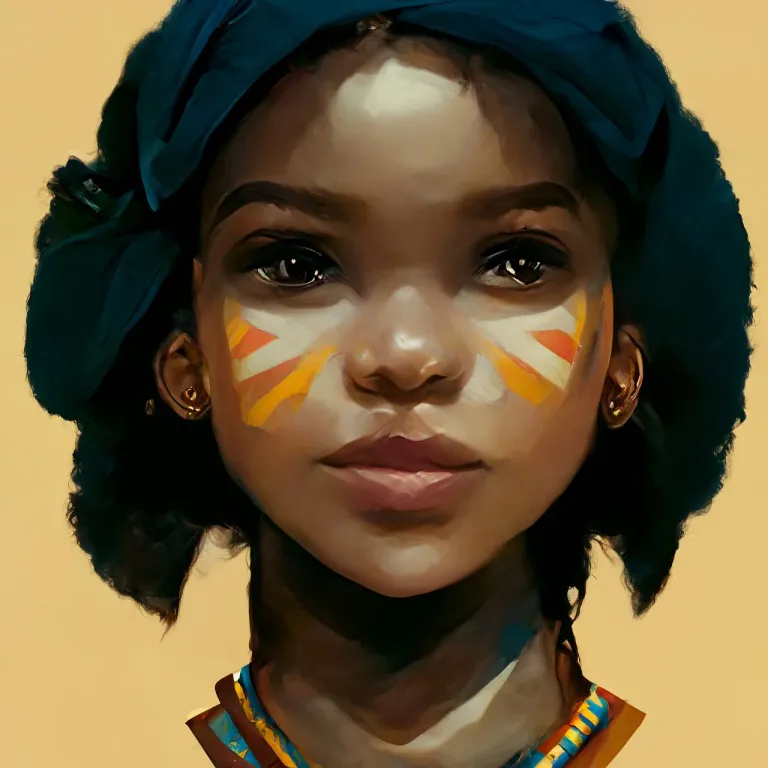
source
Cultural Background: Women come from various cultural backgrounds, encompassing a wide range of ethnicities, nationalities, and traditions. Their cultural heritage can influence their values, beliefs, traditions, and experiences.
Socioeconomic Status: Women's socioeconomic status can vary significantly, including factors such as income, education, occupation, and social class. These factors shape their access to resources, opportunities, and the challenges they may face.
Sexual Orientation and Gender Identity: Women can identify as heterosexual, lesbian, bisexual, queer, or any other sexual orientation. Additionally, gender identity can vary, with some women identifying as cisgender (identifying with the gender assigned at birth) and others as transgender or non-binary.
Life Stages: Women go through different life stages, each with its unique experiences and challenges. These stages can include childhood, adolescence, young adulthood, adulthood, and older age. Each stage brings distinct developmental, social, and biological changes.
Personal Interests and Passions: Women have diverse interests, hobbies, and passions that contribute to their unique identities. They may be involved in various fields such as arts, sports, sciences, entrepreneurship, social activism, or any other area they find compelling.
Personal Values and Beliefs: Women hold a wide range of personal values and belief systems that influence their perspectives, choices, and actions. These beliefs can be shaped by religious, philosophical, or ethical frameworks, among other influences.
Life Experiences and Challenges: Women's life experiences can differ significantly based on individual circumstances, such as upbringing, family dynamics, relationships, health, and personal achievements. These experiences shape their identities and influence their perspectives.
Intersectionality: Intersectionality recognizes that women's identities and experiences are shaped by the intersection of various social categories, such as race, ethnicity, class, disability, and more. This framework acknowledges that women's experiences cannot be understood in isolation but are influenced by multiple intersecting factors.
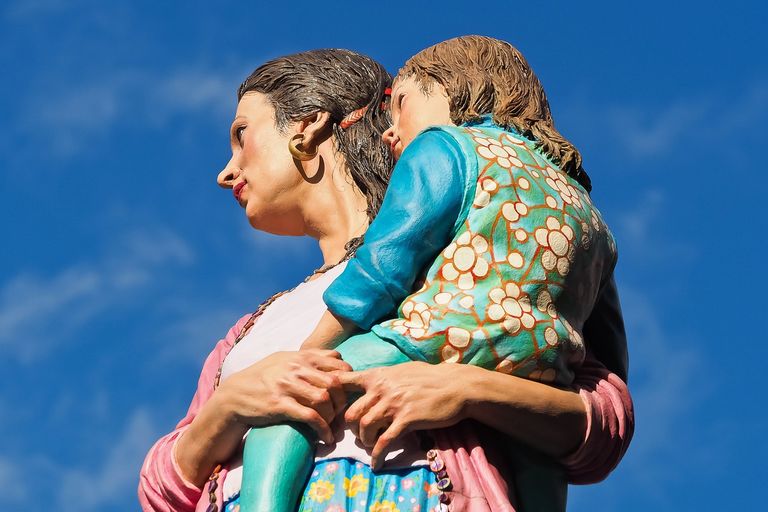
source
It is important to remember that categorizing women into types can oversimplify and overlook the individuality and complexity of each person's experiences and identities. Women should be recognized and respected as individuals with their own unique combination of characteristics, experiences, and perspectives.
The woman common behaviour
While it is important to recognize that individuals are unique and behavior can vary greatly among women, there are certain societal expectations and patterns of behavior that have historically been associated with women. These behaviors, however, can be influenced by cultural, social, and individual factors. Here are some commonly observed behaviors that have been associated with women:
Nurturing and Caregiving: Women are often associated with nurturing behaviors and are traditionally seen as primary caregivers in many cultures. This includes taking care of children, elderly family members, and tending to the emotional and physical well-being of others.
Empathy and Emotional Intelligence: Women are often perceived as having higher emotional intelligence and displaying empathy. They are often skilled in understanding and responding to others' emotions, forming strong connections, and offering support and comfort.
Communication and Collaboration: Women are often noted for their communication skills, including active listening, empathy, and the ability to build and maintain relationships. They are often inclined towards collaboration and seeking consensus in group settings.
Empowerment and Resilience: Many women demonstrate resilience and determination in the face of challenges and adversity. They strive for personal and professional growth, pursue education and career opportunities, and work towards achieving their goals.
Community Engagement: Women often participate actively in their communities, engaging in various social, volunteer, and advocacy activities. They contribute to creating positive change, addressing social issues, and supporting collective well-being.
Balancing Multiple Roles: Women often navigate multiple roles and responsibilities, such as managing work, family, relationships, and personal pursuits. They are skilled at multitasking, prioritizing, and finding ways to maintain a sense of balance in their lives.
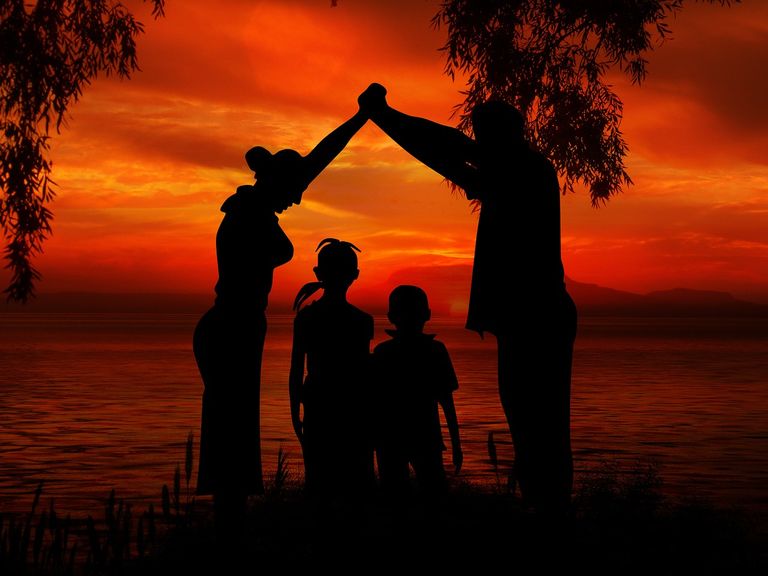
source
It is important to note that these behaviors are generalizations and do not apply to all women. Every individual is unique and can display a wide range of behaviors, which may or may not conform to societal expectations. It is essential to recognize and respect the diversity and individuality of women, allowing them the freedom to express themselves authentically without being confined by stereotypes.
The African woman child
The African woman child refers to girls who are born and raised in Africa or who identify with African cultures, values, and experiences. The term recognizes the specific challenges, opportunities, and cultural contexts that shape the lives of girls in various African societies. Here are some key aspects of the African woman child's experiences:
Cultural Diversity: Africa is a diverse continent with numerous ethnic groups, languages, and cultural traditions. The experiences of African girls vary depending on their specific cultural backgrounds, including customs, rituals, and societal expectations related to gender roles, marriage, education, and community involvement.
Education and Empowerment: Access to quality education remains a critical challenge for many African girls. Factors such as poverty, early marriage, cultural norms, and limited resources can hinder their educational opportunities. However, there are ongoing efforts to promote girls' education and empower them to reach their full potential.
Traditional Gender Roles: African societies often have traditional gender roles that assign specific responsibilities to women and girls. These roles can include household chores, caregiving, and supporting family members. However, there are also movements advocating for gender equality and challenging these traditional norms.
Economic Participation: Many African women and girls actively participate in the informal economy, engaging in activities such as farming, market vending, and entrepreneurship. Economic empowerment initiatives aim to enhance their skills, access to resources, and opportunities for sustainable livelihoods.
Health and Well-being: African girls face specific health challenges, including access to healthcare, reproductive health education, and combating gender-based violence. Efforts are underway to improve healthcare systems, provide comprehensive sexual education, and address the unique health needs of African girls and women.
Cultural Identity and Pride: African girls often have a strong connection to their cultural heritage, which shapes their identity and sense of belonging. Celebrating and preserving African cultures and traditions can be important for their self-esteem, empowerment, and personal growth.
Activism and Leadership: African girls and young women are actively involved in various forms of activism, advocating for gender equality, education, health, and social justice. They demonstrate resilience, leadership, and a commitment to making positive changes in their communities and societies.

source
Note that the experiences and realities of African girls are diverse and can vary significantly depending on factors such as geographical location, socioeconomic status, and individual circumstances.
Emphasizing the African woman child's unique experiences helps shed light on the challenges they face, while also acknowledging their strengths, resilience, and potential to drive positive change within their communities and beyond.
Specialty of African women
The specialty of African women lies in their diverse talents, strengths, and contributions to various aspects of society. Here are some notable specialties and areas where African women have made significant impact:
Resilience and Endurance: African women often exhibit remarkable resilience in the face of adversity and challenging circumstances. They have endured through historical struggles, conflicts, and socioeconomic hardships, demonstrating strength and determination.
Cultural Preservation and Heritage: African women play a crucial role in preserving and passing on cultural traditions, knowledge, and heritage to future generations. They are the custodians of indigenous languages, rituals, music, dance, storytelling, and other forms of cultural expression.
Entrepreneurship and Economic Empowerment: African women are involved in diverse entrepreneurial ventures, ranging from small-scale businesses to social enterprises. They demonstrate creativity, resourcefulness, and innovation in sectors such as agriculture, fashion, crafts, and technology. Their economic contributions are instrumental in driving local economies and promoting sustainable development.
Leadership and Governance: African women have increasingly taken up leadership positions in politics, government, civil society organizations, and community initiatives. They are active in advocating for women's rights, social justice, and inclusive governance, making significant strides toward gender equality and women's empowerment.
Education and Intellectual Contributions: African women are making notable contributions to education, research, and academia. They excel in various fields, including science, technology, engineering, mathematics, arts, humanities, and social sciences. Their intellectual prowess and expertise are advancing knowledge and shaping discourse in diverse disciplines.
Social Activism and Advocacy: African women have been at the forefront of social movements, advocating for human rights, gender equality, access to education, healthcare, and environmental sustainability. They are catalysts for change, mobilizing communities, challenging discriminatory practices, and promoting social justice.
Artistic Expression: African women have enriched the artistic landscape with their creativity, talent, and storytelling abilities. They contribute to literature, music, visual arts, film, and theater, exploring themes of identity, culture, social issues, and personal narratives.
Community Building and Social Support: African women are pillars of their communities, actively engaged in community-building activities and providing social support networks. They play vital roles in fostering unity, social cohesion, and intergenerational knowledge transfer.
Celebrating the specialties of African women recognizes their unique experiences, talents, and leadership, and promotes a more inclusive and equitable representation of their contributions within African societies and globally.
The strength to an African woman
The strength of an African woman encompasses various dimensions and is demonstrated in numerous ways. Here are some key aspects highlighting the strength of African women:
Resilience and Perseverance: African women exhibit remarkable resilience in the face of adversity and challenges. They often navigate through difficult circumstances with determination, finding ways to overcome obstacles and build better lives for themselves and their communities.
Courage and Boldness: African women demonstrate courage in pursuing their dreams, asserting their rights, and challenging societal norms and injustices. They speak up against gender inequality, discrimination, and other forms of social injustice, advocating for change and equality.
Empowerment and Self-Sufficiency: African women actively seek empowerment and self-sufficiency, striving for economic independence and sustainable livelihoods. They engage in entrepreneurship, vocational training, and income-generating activities to support themselves and their families.
Community Leadership and Nurturing: African women play pivotal roles in their communities as leaders, caregivers, and nurturers. They contribute to community development, provide support systems, and mentor the younger generation, fostering a sense of unity and collective well-being.
Educational Achievements: African women are breaking barriers and excelling in education. They are pursuing higher education, acquiring skills, and becoming professionals in various fields. Their educational achievements contribute to their personal growth and open doors to broader opportunities.
Cultural Preservation and Promotion: African women actively preserve and promote their rich cultural heritage. They transmit traditional knowledge, customs, and languages to future generations, ensuring the continuity of African cultures and traditions.
Respecting and Upholding Family Values: African women often prioritize and uphold family values, emphasizing the importance of unity, respect, and cooperation within the family structure. They play key roles as caregivers, mentors, and role models for their children, fostering a strong sense of identity and values.
Contribution to Social Change: African women are agents of social change, actively engaging in social activism and advocating for gender equality, human rights, and social justice. They mobilize communities, participate in grassroots movements, and contribute to policy reforms for a more equitable society.

source
It is important to recognize that the strength of African women is not limited to these examples and varies across individuals, communities, and contexts. African women's strength lies in their diversity, resilience, and the unique ways they navigate and shape their lives and communities, enriching the social fabric of Africa as a whole.
The Nigerian woman child
The Nigerian woman child refers to girls who are born and raised in Nigeria or identify with Nigerian culture, values, and experiences. Nigeria, being a diverse country with over 250 ethnic groups, has a rich cultural tapestry that influences the lives of Nigerian girls in various ways. Here are some key aspects of the Nigerian woman child's experiences:
Cultural Diversity: Nigeria is known for its cultural diversity, with each ethnic group having its unique traditions, languages, and customs. Nigerian girls experience diverse cultural practices, which shape their identities and contribute to the rich tapestry of Nigerian society.
Educational Pursuits: Nigerian girls are increasingly pursuing education and striving for academic excellence. They face various challenges such as limited access to quality education, gender stereotypes, and societal expectations. However, many Nigerian girls are determined to overcome these obstacles, aspiring for higher education and professional careers.
Family and Community Values: Nigerian society places a strong emphasis on family and community values. Nigerian girls are often raised with a sense of respect for elders, community solidarity, and communal responsibilities. They are expected to contribute to family welfare and participate in community development activities.
Entrepreneurial Spirit: Nigerian women, including girls, have a strong entrepreneurial spirit. Many Nigerian girls engage in small-scale businesses, such as trading, fashion, beauty, and crafts. They showcase creativity, resilience, and resourcefulness in their entrepreneurial pursuits.
Cultural Heritage and Identity: Nigerian girls take pride in their cultural heritage and actively participate in cultural activities, including traditional dances, music, arts, and festivals. They celebrate their unique Nigerian identity and contribute to the preservation and promotion of Nigerian culture.
Social Challenges and Activism: Nigerian girls face social challenges such as gender inequality, child marriage, poverty, and limited access to healthcare. However, many Nigerian girls are resilient and engage in social activism, advocating for girls' rights, education, and social justice.
Leadership and Role Models: Nigerian girls have role models in various fields, including politics, business, academia, arts, and social activism. They aspire to become leaders and make significant contributions to their communities and the Nigerian society at large.
Sports and Entertainment: Nigerian girls have made their mark in sports and entertainment. They excel in athletics, football, basketball, and other sports. Nigerian girls are also involved in the entertainment industry, showcasing their talents in music, film, and performing arts.
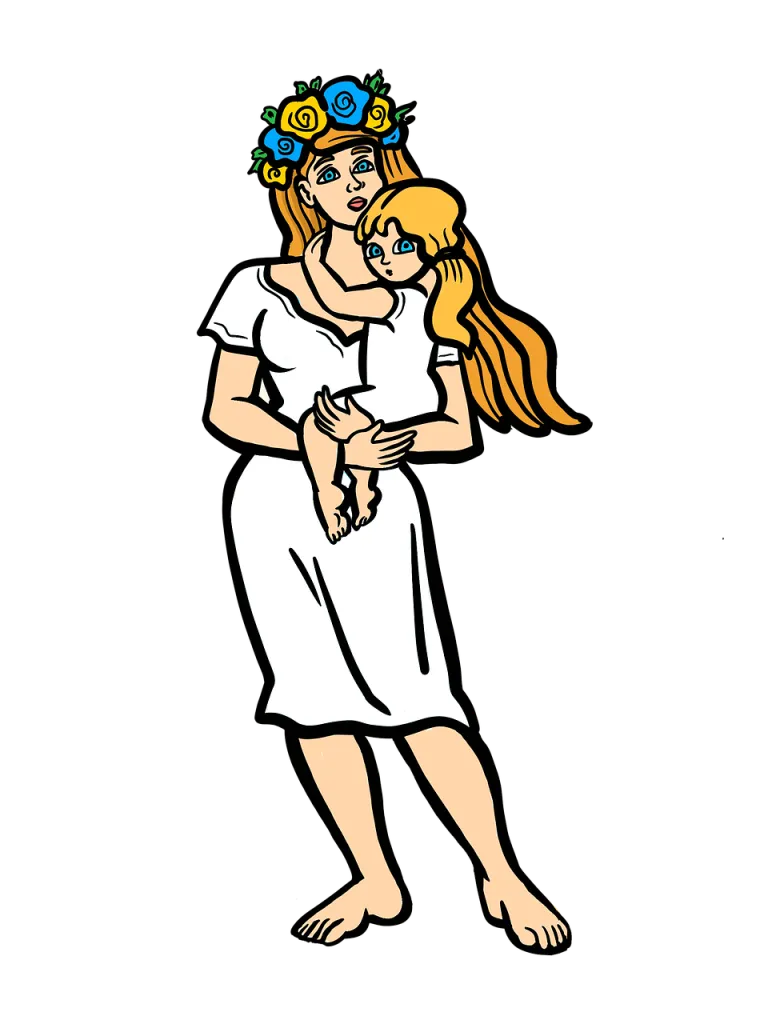
source
The uniqueness of Nigerian women
The uniqueness of Nigerian women, compared to other African women, stems from the specific cultural, historical, and social context of Nigeria. While it is important to avoid generalizations and recognize the diversity within African women, here are some aspects that highlight the distinctiveness of Nigerian women:
Ethnic Diversity: Nigeria is known for its ethnic diversity, with over 250 ethnic groups. Each group has its unique languages, traditions, and cultural practices. Nigerian women embody this diversity, reflecting the richness of different ethnic backgrounds within the country.
Nollywood Influence: Nigeria's vibrant film industry, known as Nollywood, is the largest in Africa and the second-largest globally. Nigerian women have made significant contributions to Nollywood as actresses, filmmakers, producers, and screenwriters, shaping the narratives and representation of African women in film and entertainment.
Fashion and Style: Nigerian women have a distinct sense of fashion and style, characterized by vibrant and colorful traditional attire. Nigerian women's fashion, such as the gele headwrap, Ankara prints, and traditional fabrics like Aso-oke, showcases their unique cultural expression and creativity.
Food and Cuisine: Nigerian cuisine is diverse and flavorful, reflecting the culinary traditions of different ethnic groups. Nigerian women are known for their culinary skills, creating delicious dishes such as jollof rice, egusi soup, pounded yam, and suya. Nigerian cuisine represents a fusion of flavors and spices that set it apart from other African cuisines.
Literature and Writing: Nigerian women have played a significant role in African literature. Renowned authors like Chimamanda Ngozi Adichie, Buchi Emecheta, and Flora Nwapa have explored various themes such as gender, identity, and cultural dynamics in their works, contributing to the literary landscape.
Enterprising Spirit: Nigerian women exhibit a strong entrepreneurial spirit and engage in various business ventures. They are involved in sectors such as trading, fashion, beauty, and agriculture, contributing to the country's economic growth and development.
Social Activism: Nigerian women have been at the forefront of social activism and advocacy for gender equality and women's rights. Movements like the Bring Back Our Girls campaign and the Women's Rights Advancement and Protection Alternative (WRAPA) demonstrate Nigerian women's resilience and commitment to social change.
Music and Dance: Nigerian women have made significant contributions to the vibrant music industry, producing celebrated artists across various genres such as Afrobeat, Afrobeats, highlife, and gospel music. Nigerian women's musical talents and performances have gained global recognition.
The future of the girl child in our world.
The future of the girl child in our world holds immense potential for progress and positive change. Efforts are underway globally to address the barriers and challenges faced by girls and to create an inclusive and empowering environment for their growth and development. Here are some key areas that shape the future of the girl child:
Education and Empowerment: Ensuring access to quality education for girls is crucial. Education equips girls with knowledge, skills, and confidence, enabling them to participate fully in society and pursue their dreams. Efforts are being made to promote girls' education, bridge the gender gap in STEM fields, and provide opportunities for vocational training and entrepreneurship.
Gender Equality and Women's Empowerment: Achieving gender equality is essential for the future of the girl child. This involves challenging harmful gender norms, eliminating discrimination and violence against girls, and ensuring equal rights and opportunities. Advocacy for girls' and women's rights is essential in creating a more inclusive and equitable world.
Health and Well-being: Ensuring the health and well-being of girls is crucial for their future. This includes access to healthcare services, comprehensive sexual and reproductive health education, and addressing issues such as child marriage, female genital mutilation, and adolescent pregnancy. Promoting mental health and well-being is also important to support girls' overall development.
Leadership and Representation: The future of the girl child involves nurturing their leadership abilities and promoting their representation in various fields. Encouraging girls to participate in decision-making processes, supporting their aspirations for leadership roles, and providing mentorship opportunities can help create a more inclusive and diverse society.
Technology and Digital Inclusion: Bridging the digital gender divide is crucial for the future of girls. Ensuring access to technology, digital literacy, and online safety measures can empower girls to harness the potential of digital tools for learning, creativity, and accessing information. Closing the digital gender gap is essential for their participation in the digital economy and future opportunities.
Ending Violence and Discrimination: Efforts to eliminate violence and discrimination against girls are vital for their future well-being. This includes combating child marriage, human trafficking, gender-based violence, and other harmful practices. Creating safe environments, raising awareness, and strengthening legal frameworks are crucial steps toward ensuring the safety and protection of the girl child.
Environmental Sustainability: The future of the girl child is intertwined with environmental sustainability. Addressing climate change, promoting sustainable practices, and empowering girls to be environmental stewards can contribute to a better future for all. Girls' participation in environmental initiatives and education about climate change can create lasting positive impacts.

source
The girl child, regardless of her cultural or geographical background, holds immense potential and represents the future of our world. By prioritizing their rights, education, health, and empowerment, we can create a more equitable, inclusive, and prosperous society.
The uniqueness of being a girl and a woman is celebrated through their diverse talents, strengths, and contributions. African women, including Nigerian women, bring their own special qualities and experiences, shaping the rich cultural tapestry of Africa.
While there are challenges to overcome, such as gender inequality, discrimination, and social barriers, efforts are being made globally to address these issues. Through education, gender equality initiatives, health interventions, and inclusive policies, we can create an environment that allows girls to thrive and reach their full potential.
The future of the girl child holds promise, driven by advancements in education, technology, and women's empowerment movements. It is essential to continue advocating for their rights, ensuring their access to quality education, and promoting their leadership and representation in various fields.
By investing in the girl child, we invest in the progress and prosperity of our societies. Empowered girls grow into empowered women who contribute positively to their communities, drive social change, and shape a better future for themselves and future generations.

source
In conclusion,
It is our collective responsibility to create a world where every girl has equal opportunities, where their voices are heard, and where they can fulfill their dreams and aspirations. Let us work together to build a future that celebrates and empowers the girl child, unlocking their potential and creating a brighter and more inclusive world for all.


